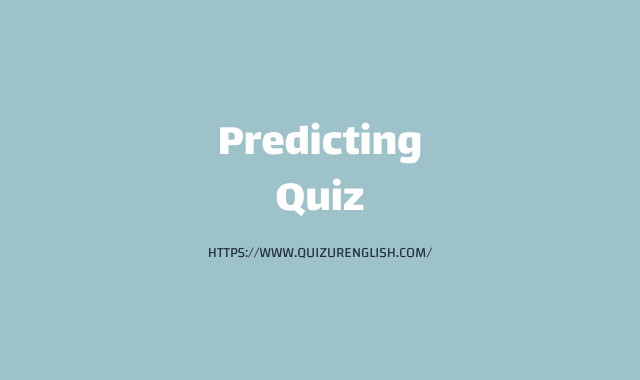Predicting
Predicting is an important reading skill that helps readers understand and engage with a text. It involves using prior knowledge and context clues to make predictions about what might happen next in a story or what an author might be trying to convey. In this blog post, we'll explore how predicting can improve reading comprehension and some strategies that can help readers develop this skill.
Why is predicting important for reading comprehension?
Predicting helps readers actively engage with a text and become more invested in the story or information being presented. It also helps to build curiosity and encourages readers to pay closer attention to the text. By making predictions, readers can better understand the text and anticipate what might happen next, which can help improve their comprehension and retention of the material.
Predicting can also help readers understand the purpose and main ideas of a text. By considering what an author might be trying to convey and what the text is trying to accomplish, readers can better understand the big picture and identify key themes and ideas.
Strategies for predicting
There are several strategies that readers can use to improve their predicting skills:
Use prior knowledge: Readers can use their own experiences, knowledge, and background information to make predictions about a text. For example, if a reader knows that a story is set in a particular time period or location, they might be able to make predictions about what kind of events or characters might appear in the story.
Consider the context: Context clues, such as the tone, setting, or genre of a text, can provide helpful information for predicting what might happen next. For example, if a story is set in a fantasy world, readers might expect to see elements like magic or mythical creatures.
Pay attention to word choice: Words that are used in a specific or unusual way can provide clues about what an author might be trying to convey or what might happen next. For example, if an author uses words like "suddenly" or "mysteriously," it might indicate that something unexpected or suspenseful is about to happen.
Make connections: Connecting a text to something else, such as a personal experience or another text, can help readers make predictions about what might happen next or what an author might be trying to convey.
By using these strategies, readers can develop their predicting skills and improve their reading comprehension.
Conclusion
Predicting is an important reading skill that helps readers understand and engage with a text. By using prior knowledge, considering the context, paying attention to word choice, and making connections, readers can improve their predicting skills and better understand the material they are reading.


